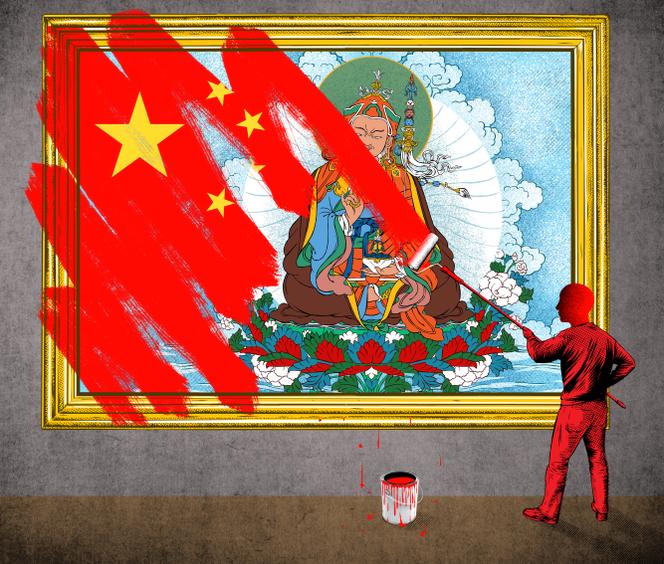


The controversy sparked by an op-ed written by eminent French specialists on Tibet and China, published in Le Monde, on August 31, claiming that two major French national museums had "bowed" to Beijing's "wishes" regarding exhibiting Tibetan art objects, continues to make waves in these circles.
The op-ed, which accused two Paris museums, Guimet (which specializes in Asian art) and the Quai Branly-Jacques-Chirac (featuring indigenous art and culture from Africa, Asia, Oceania and the Americas), of having "erased" the name "Tibet" (which had been an independent or semi-independent kingdom throughout its long history, before it was invaded by Maoist soldiers in 1950) from their exhibitions in order to please China, has caused a stir: The president of the Tibetan government in exile, based in the Indian city of Dharamsala, has sent a letter of protest to the French Culture and Foreign Affairs Ministries, the mayor of Paris and the museums involved.
"I am writing to express my deep concern and disappointment upon learning that two reputed museums in Paris, the Musée du Quai Branly and the Musée Guimet, have used 'Xizang' or 'Himalayan World,' respectively, in place of 'Tibet,' which is widely used in French, in their collections of Tibetan artifacts," said the Tibetan Sikyong ("president") Penpa Tsering. According to this representative of the Tibetan body in exile, "the term 'Xizang' not only distorts the history of Tibet as an independent nation but also aids the Chinese government’s ongoing efforts to suppress Tibetan identity."
The Guimet Museum and the Quai Branly Museum have been criticized for two separate, albeit similar, reasons: At Guimet, Tibet specialists have criticized the name change made to an exhibition space, which was, until recently, presented under the title "Nepal-Tibet": Tibetan and Nepalese art are now grouped together under the heading "Himalayan World," giving credence to suspicions that this might be due to a desire to marginalize the very name "Tibet" – which is nevertheless mentioned in some of the explanatory labels affixed to the front of the space's display cases.
As for the Quai Branly, it has been criticized for having, for years, used the name "Xizang Autonomous Region" to designate Tibet, once again fueling suspicions of a pro-Beijing bias.
To understand the reasons behind this controversy, we need to explain why the use of Chinese semantics has offended Tibetans and angered some Tibet experts: Firstly, the name "Xizang" (a term meaning "treasure of the West," which the Chinese use to designate Tibet) has, since the end of 2023, been imposed by Beijing in all its foreign-language documentation and diplomatic interactions devoted to Tibet.
You have 69.29% of this article left to read. The rest is for subscribers only.
